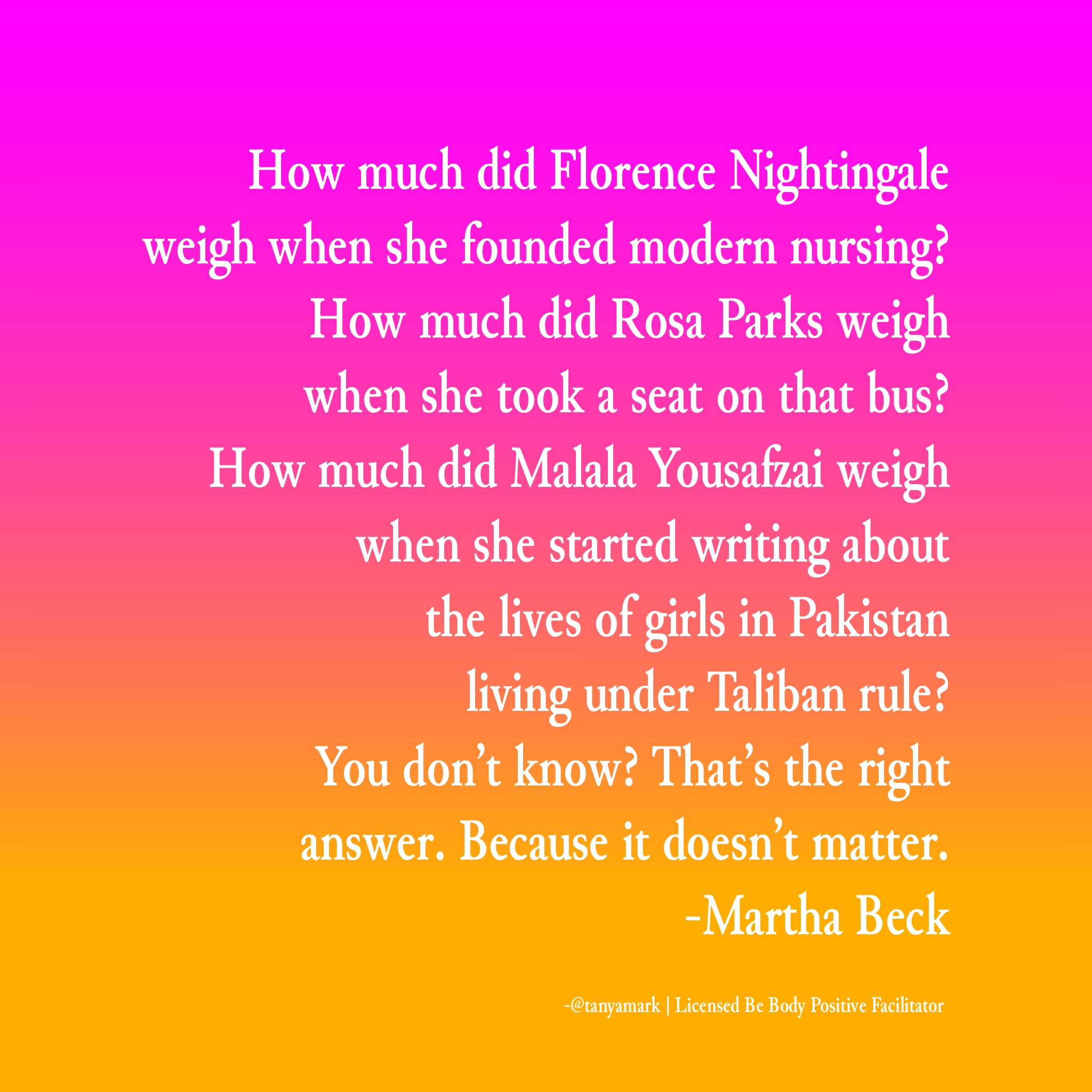“No one is going to stand up at your funeral and say, ‘She had a small waist and a great thigh gap.’”
—Ailey Jolie, registered clinical counselor
As a woman, former exercise professional and “eat this, not that” nutrition coach, that could have been how I was remembered. My identity was health and wellness. And my professional success, for the most part, used to be measured in pounds and inches lost.
After years of working in the fitness and nutrition fields, I saw the harm the “wellness industry” was perpetuating and my part in it. I felt dishonest teaching that you could have the “healthy” body you desired if you just ate well and exercised more. We are not here on planet earth to spend a heartbreaking amount of time, resources and energy trying to mold our bodies.
That wasn’t the legacy that I wanted to leave behind for future generations.
Trending toward moralistic
“At its core, ‘wellness’ is about weight loss,” author Jessica Knoll wrote in “Smash the Wellness Industry,” an opinion piece printed June 8, 2019 in the New York Times. “It demonizes calorically dense and delicious foods, preserving a vicious fallacy: Thin is healthy and healthy is thin.”
Even smart, successful women have fallen prey to weight loss disguised as wellness, Knoll noted. She described a recent lunch with her friends during which they struggled to order off the menu: One was eliminating dairy to lose weight, another was trying to be “good.” And they were all picking apart their perceived flaws: excess body fat, cellulite, post-baby weight. She wondered what the men at the next table were talking about.
I doubt it was weight loss.
Health has become fear-based and moralistic — good, bad, clean, dirty. We believe we must worry about every morsel as if we’re just one bite away from disease. And for many, exercise is a “should,” though at times rest may be the best form of self-care.
How do you determine if a behavior is truly healthful? Simply put, if self-care is creating stress, it’s not self-care. Chronic stress is worse for our health than anything we eat or any workout we skip.
Different word, same diet
Your body at its healthiest and fittest may not look the way you hoped or were led to believe it would. As Beauty Redefined, a nonprofit promoting body image resilience, wrote in a recent Instagram post: “We must learn to separate cultural outward body ideals like thinness from our health and fitness pursuits.”
Although the language we hear every day has shifted away from weight loss to healthy behaviors, the underlying goal of the diet industry disguised as wellness remains: Pounds lost equals success.
Take Weight Watchers, for example, which in September 2018 rebranded to WW with an attempt to redefine the acronym as “Wellness Wins,” a move to “reimagine” the program. But examine the company’s messaging on its Instagram:
“What sweet treats do you save your SmartPoints for?”
“Raise your hand if your scale is always wrong on Mondays”? Laughing emoji.
“Seeking: SmartPoints refund for food that didn’t taste as good as it looked.”
“Me: How you feel is as important as how much you weigh. Also me: Removes dangly earrings before stepping on the scale.” Laughing emoji.
What struck me most was how frequently the laughing emoji is used, a move that seemingly makes light of our perceived food and body failures and preoccupation with the scale and food.
How we feel about our bodies is no joke. I have a well-used tissue box in my office to prove it.
We don’t need more of the same, no matter what it is named. We need honest messaging that frees us from a war with ourselves, that frees us from believing that we even need to start our week out by stepping on a scale.
Your values, your life
Getting clear on your personal values is the start of creating space for a meaningful and impactful life. I love to use value cards, which present 80-plus values sorted into three piles: very important, important and not important.
Once you’ve determined your top five values, go live them. Let these values guide your daily decisions. Let them take up space in your mind that you once dedicated to dieting and weight loss.
To further put things into perspective, I’d like you to answer three profound questions asked by author Martha Beck:

Right on, Martha.
That is the legacy I want to leave behind.
If you, too, find yourself stuck in the toxic messages of the “wellness” industry and it’s distracting you from living fully into your personal values, take heed of this powerful message from former Jackson Hole News & Guide Deputy Editor Melissa Cassutt:
“I read obituaries for a living, and weight has been mentioned in exactly zero. I never even see beautiful or handsome used. What families and friends often remember is how a person made them feel.”
Don’t allow the diet industry disguised as wellness to define your health. Know your values, focus on them, and take care of your whole self. You will be remembered for how you made others feel, not for the size of your waist or thighs.
And that is truly the most beautiful thing about you.
(This article was published in the August 21, 2019 edition of the Jackson Hole News and Guide).



